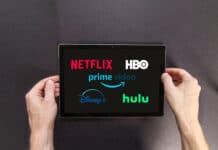
Last Updated on June 1, 2021 by Mark P.
Budgeting is an essential skill a beginner can have. Being equipped with proper budgeting skills will lower stress levels and will make you smile with less stress. Creating a spreadsheet or tracking expenses through an app will help you take control of your spending habits.
When I was younger, I did not know, nor did I care about tracking each of my expenses. My spending habits were out of control. I would spend money on countless items such as clothes, courses I would never use again, and eating out impulsively. Guess what? I learned the HARD way!
According to a recent statistic, 50% of Americans live paycheck to paycheck. A shocking 58% of Americans have less than $1,000 saved! Please be the outlier and save yourself the agony of not being in financial distress.
Do not be the person I was. This article will explain why budgeting is worth your time and then go into your financial goals. Finally, I will explain different methods of tracking your income/expenses.
Why is Budgeting Worth Your Time
Each time you sit down and prepare your budget, ask yourself, “why am I preparing a budget?”. Wouldn’t you love to have less stress and worry less? Those who budget correctly have fewer worries than the spenders.
There are countless reasons why the beginner should start budgeting immediately. Here are some of the reasons:
- Reduce instant gratification on spending – spend wisely
- Plan for retirement
- Avoid debt
- Save more free cash flow.
The majority of these reasons hold more weight than others. For example, planning for retirement and avoiding loads of debt. These two reasons are the most crucial because who wants to be in debt during their retirement journey?
While it may seem pointless to sit down for a few hours each week to budget, your mental health plays a significant role in handling money. Budgeting makes it more likely for you to reach your financial goals. How often have you reached your personal, career, academic goals and felt a rush of dopamine? Well, the same holds with budgeting.
Assessing Financial Goals
If you do not know your financial goals, short or long term, say goodbye to your financial independence. Making a list of both short and long-term goals will carry forward in the long run.
Below are some important financial goals that you may be considering yourself:
- Paying off debt
- Saving for a vacation
- Save for retirement – 401(k) & IRA
- Buying a piece of property
Writing out your goals on paper will solidify that memory and motivate you to achieve that goal. Be very specific about your plans. Use the SMART goal technique. The acronym stands for Specific, Measurable, Achievable, Relevant, and Time. Here is an example of a specific goal:
“By December 2020, I will save an X amount of after-tax income to pay off my student loan.”
Boom. You have a specific goal that is 100% measurable, definitely achievable, and is relevant to your situation that fits into a particular time frame.
Spending Habits
Spending habits are the meat of budgeting. Building up a mindful practice of your spending is an important skill to build. Are you spending freely without being mindful? You will never meet your goals if this is you.
Below are some common ways to track your money:
- Budgeting apps: My favorite is Inuit Mint. This app makes budgeting simple. It tracks all of your bank accounts, investment accounts, loans, and credit card transactions. Within minutes, Mint gives you a rundown of your spending habits because it pulls your transaction data from a couple of months prior.
- Microsoft Excel: This method can be a bit time consuming if you do not have the patience. Creating a pivot table showing your income, expenses, different accounts, and categories of costs is a detailed approach. However, if you love the technical aspect, Excel is an excellent fit for you.
- Old Fashion: You can go the old fashion route and get paper statements of your bank and credit card transactions. Going through each line item, you can visually see what’s going in and what’s going out. This method is helpful if you are a more visual type of person.
After categorizing each expense ask yourself, where is my income going? Is the majority of my income going toward entertainment? Am I eating out too much? Groceries? Asking these questions will give you a great overall picture of your spending.
Simple Budgeting Rule
Not knowing how to split my income up made me miserable. I kept overthinking, asking myself, “Where should I put X amount?” “Will I have enough to save up by X age?” In the end, it came down to a simple rule I call the budgeting rule.
50% After-Tax Income
To start, you should allow 50% of your income to go towards your needs. These needs include loan payments (credit cards, student loans), health and car insurance, housing utilities, and groceries. If you still have extra income left over, you can strategize a bit and figure out how to utilize the expenses. For example, you can find a cheaper car insurance plan.
30% After-Tax Income
Don’t we all love that instant gratification of wanting more and more? That watch we saw in the store? I have to buy it immediately, our brain tells us. Well, pump your brakes. You must be able to decide specific wants from needs. For example, some desires include dining out, traveling, and going out to clubs or other fun hotspots.
The tricky part is figuring out what a want is according to your situation. Is that gym membership a necessary want or need? What if you recently became vegetarian and only bought certain foods? Wants can vary from person to person.
If you are racking up debt on your credit card, these wants must come to a halt for the time being. Save up enough until you have your debt situation under control. Always make sure to have just enough to spend on that steak dinner you’ve been craving to have for some time now.
20% After-Tax Income
Finally, 20% of your after-tax income should immediately go into your savings or a money market account. Think big picture and long term once you reach this category. If you want long term wealth, the 20% rule will benefit you tremendously.
Plan Regular Expenses

Once you know where your cash is going, you want to separate different expenses categories. Here are the main expense categories.
Occasional Expenses
Occasional expenses are variable expenses. Meaning you cannot predict how much you will spend in the next six months. For example, you cannot indicate your grocery expense list far out into the future. On the other hand, certain expenses like rent, a fixed value, will remain the same, which brings me to my next item.
Fixed Expenses
Easy to predict, fixed expenses include a mortgage expense or a car loan each month. I like fixed payments because I can easily anticipate them, and they fit perfectly within my budget schedule. Covering these costs can be a financial challenge but are a top priority.
Periodic Expenses
These expenses are the toughest to figure out. Examples of recurring costs include hospital visits or car repairs. There was a time I got into a car accident. I had an emergency back up fund for the repair. I highly recommend keeping emergency savings account as this can prevent you from charging any surprise expense to your credit card.
Final Thoughts
Automating your bank and credit card accounts will make life much more comfortable. Also, be conscious the next time you get a paycheck. Figure out what your necessities and wants include. After you figure out wants and needs, break up your expenses and plan fixed payments.
Unfortunately, most of us are not taught budgeting techniques at an early age. The majority of us have to learn from experience. You must plan. A great quote that I keep in the back of my mind is, “planning to fail is failing to plan.”
























